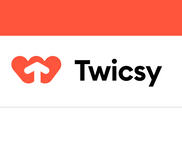URL-Encoding Bodies
By default, axios serializes JavaScript objects to JSON. To send data in the application/x-www-form-urlencoded format instead, you can use one of the following options.
Browser
In a browser, you can use the URLSearchParams API as follows:
const params = new URLSearchParams();
params.append('param1', 'value1');
params.append('param2', 'value2');
axios.post('/foo', params);
Note that
URLSearchParamsis not supported by all browsers (see caniuse.com), but there is a polyfill available (make sure to polyfill the global environment).
Alternatively, you can encode data using the qs library:
const qs = require('qs');
axios.post('/foo', qs.stringify({ 'bar': 123 }));
Or in another way (ES6),
import qs from 'qs';
const data = { 'bar': 123 };
const options = {
method: 'POST',
headers: { 'content-type': 'application/x-www-form-urlencoded' },
data: qs.stringify(data),
url,
};
axios(options);
Node.js
Query string
In node.js, you can use the querystring module as follows:
const querystring = require('querystring');
axios.post('http://something.com/', querystring.stringify({ foo: 'bar' }));
or 'URLSearchParams' from 'url module' as follows:
const url = require('url');
const params = new url.URLSearchParams({ foo: 'bar' });
axios.post('http://something.com/', params.toString());
You can also use the qs library.
NOTE
The qs library is preferable if you need to stringify nested objects, as the querystring method has known issues with that use case (https://github.com/nodejs/node-v0.x-archive/issues/1665).
Form data
In node.js, you can use the form-data library as follows:
const FormData = require('form-data');
const form = new FormData();
form.append('my_field', 'my value');
form.append('my_buffer', new Buffer(10));
form.append('my_file', fs.createReadStream('/foo/bar.jpg'));
axios.post('https://example.com', form, { headers: form.getHeaders() })
Alternatively, use an interceptor:
axios.interceptors.request.use(config => {
if (config.data instanceof FormData) {
Object.assign(config.headers, config.data.getHeaders());
}
return config;
});





